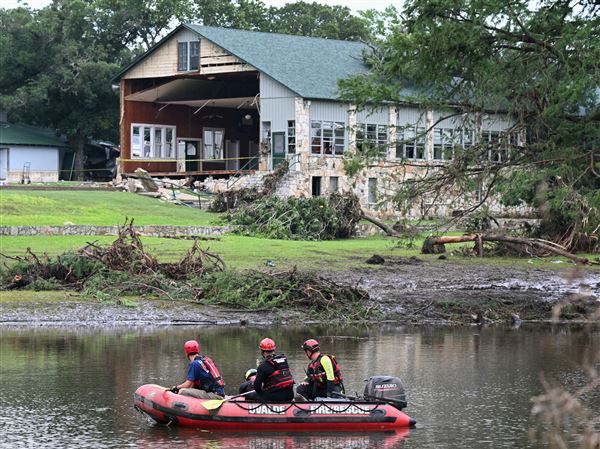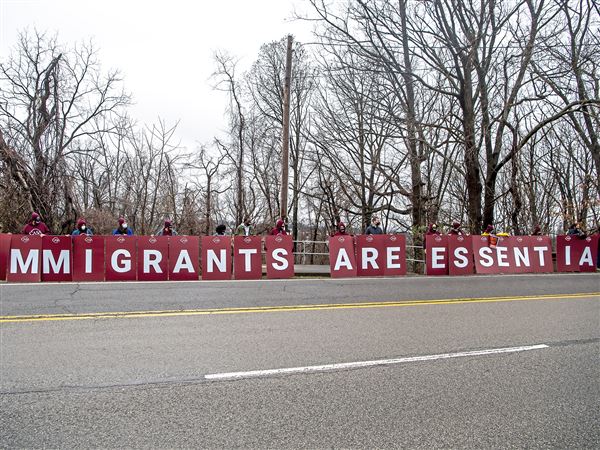WASHINGTON -- The Obama administration and its European allies plan to open fresh negotiations with Iran by demanding the immediate closing and ultimate dismantling of a recently completed nuclear facility deep under a mountain, according to U.S. and European diplomats.
They are also calling for a halt in the production of uranium fuel that is considered just a few steps from bomb-grade, and the shipment of existing stockpiles of that fuel out of the country, the diplomats said.
That negotiating position will be the opening move in what President Barack Obama has called Iran's "last chance" to resolve its nuclear confrontation with the United Nations and the West diplomatically. The hard-line approach would require the country's military leadership to give up the Fordo enrichment plant outside the holy city of Qom, and with it a huge investment in the one facility that is most hardened against air attack.
While it is unclear whether the allies would accept anything less than closing and disassembling Fordo, government and outside experts say the terms may be especially difficult for Iran's leaders to accept when they need to appear strong in the face of political infighting.
Mr. Obama's aides are gambling that the negotiations, under the threat of Israeli military action, will finally force a resolution of the long-running debate in Iran between those who want to pursue negotiated settlement -- and with it an end to crushing sanctions -- and those who believe engaging in the talks is tantamount to capitulation.
"We have no idea how the Iranians will react," one senior administration official said. "We probably won't know after the first meeting." But the next round of oil sanctions, he noted, kick in early this summer.
The bitter tensions among competing factions inside Iran's leadership may explain the country's continuing haggling about the venue of the talks, planned next Friday. In recent days, Iran has changed its position and balked at holding them in Istanbul, demanding a move to what Tehran calls more neutral territory, like Iraq or China.
Both Obama administration officials and their European negotiating partners say they have doubts about Tehran's readiness to negotiate seriously about halting its uranium-enrichment program and finally answering questions from international nuclear inspectors about its "possible military dimensions," including evidence that Iran may have worked on warhead designs and nuclear triggers.
There is disagreement among the Western allies about whether Iran's leaders have made a political decision to pursue a nuclear weapon. U.S. intelligence agencies have stuck to a 2007 intelligence assessment that found that Iran suspended research on nuclear weapons technology in 2003 and has not decided to take the final steps needed to build a bomb. But Britain and Israel in particular, looking at essentially the same evidence, say they believe a decision has been made to move to a nuclear weapons capability, if not a weapon itself.
Israel and some European leaders fear that Iran will drag out talks to buy time while its centrifuges keep spinning. The Fordo facility, on a well-defended military base and tucked into a mountain, is under so much granite that Israel fears it could create what Defense Minister Ehud Barak calls a "zone of immunity," where Iran could operate its nuclear program out of reach of Israeli bombs.
While opening bids in all international negotiations are often designed to set a high bar, as a political matter U.S. and European officials say they cannot imagine agreeing to any outcome that leaves Iran with a stockpile of fuel that could be converted to bomb-grade in a matter of months. They say that gives too little warning time if Iran makes a decision to build a weapon.
In interviews, administration officials said getting Iran to give up -- and ship out of the country -- its stockpile of uranium enriched to 20 percent purity was their "urgent priority," along with closure of Fordo. Dismantlement, they said, would come in a second stage. Iran has produced only about 100 kilograms of 20 percent enriched uranium so far -- less than it would need to produce a single nuclear weapon -- but it has announced plans to increase production sharply in coming months.
It is unclear whether that is possible: Sanctions, embargoes on crucial parts and Western sabotage have all delayed the program. But converting the 20 percent enriched fuel to highly enriched uranium for a bomb is a process that takes only a few months, and the U.S. and European strategy is that if they can eliminate that stockpile there is time to negotiate on the fate of lower-enriched uranium.
But that priority leaves the tactics unclear, European officials and some outside experts say. Will the negotiators -- representing the countries of the U.N. Security Council, plus Germany and led by the European Union -- demand at the outset that all of Iran's fuel, including much larger quantities enriched to reactor-grade level of about 5 percent, leave the country? A series of Security Council resolutions, which Iran has flouted, require full suspension of all enrichment, but leave unclear for how long, or under what conditions Iran could resume.
"Our position is clear: Iran must live up to its international obligations, including full suspension of uranium enrichment as required by multiple U.N. Security Council resolutions," Tommy Vietor, spokesman for the National Security Council, said Friday.
Russia has already said that a three-month "suspension" of Iran's enrichment activity would be sufficient, and then Iran could resume producing low-enriched uranium, under international safeguards. Washington, Britain, France and Germany have rejected that view. "What we are looking for is a way to acknowledge Iran's right to enrich, but only at levels that would give us plenty of warning if they moved toward a weapon," one European diplomat familiar with the internal debates said.
Iran claims that right as a signatory to the Nuclear Non-Proliferation Treaty, which allows nations to enrich for civilian nuclear power. The West says that Iran has breached its commitments by refusing to answer questions from the International Atomic Energy Agency and refusing to comply with Security Council mandates.
First Published: April 8, 2012, 4:00 a.m.
Updated: April 8, 2012, 4:37 a.m.














